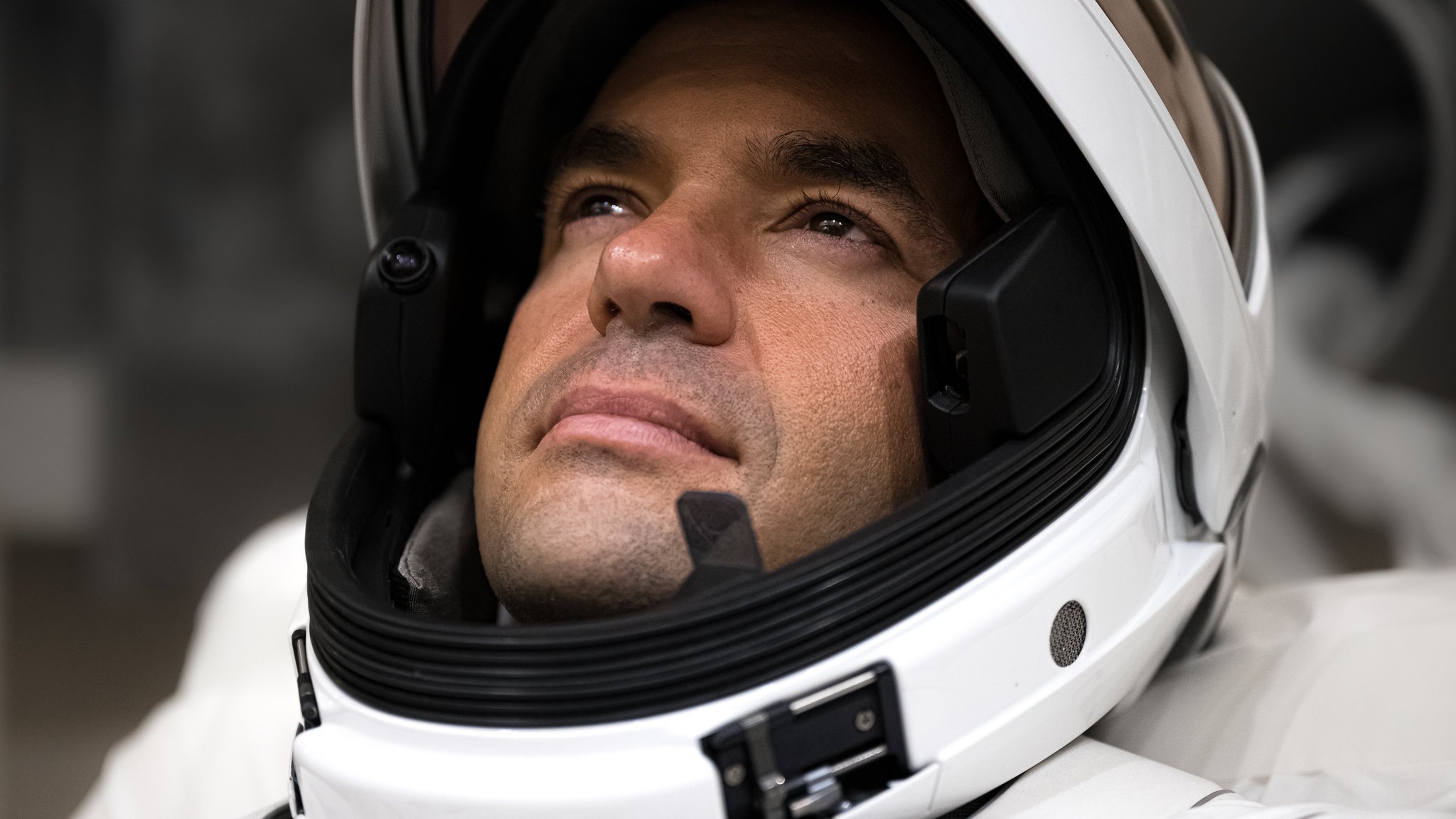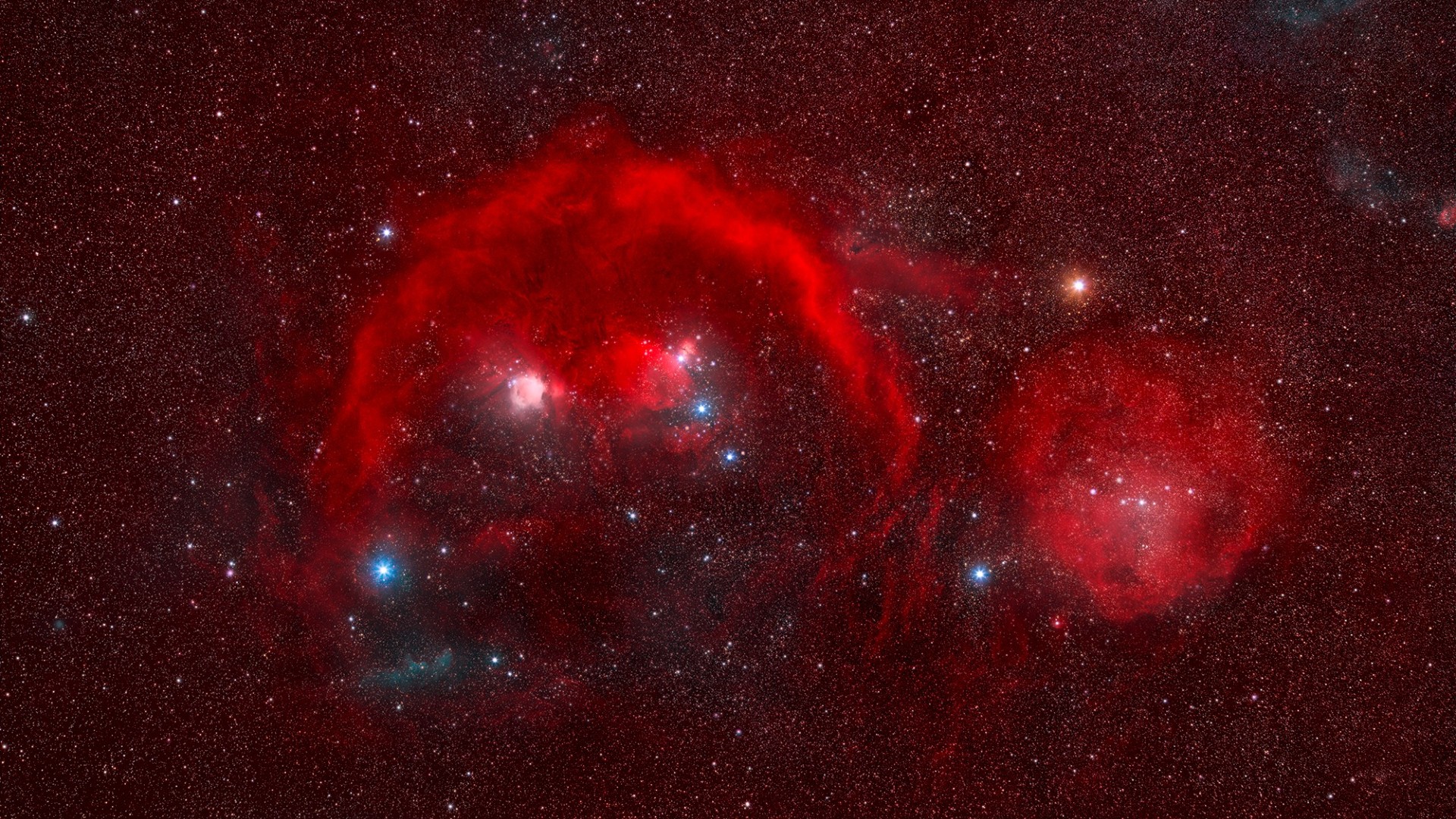Who is Jared Isaacman, Trump's pick for NASA chief?
Isaacman is a billionaire entrepreneur with considerable spaceflight experience.

U.S. President-elect Donald Trump has nominated Jared Isaacman, a billionaire, philanthropist and private astronaut to lead NASA. What do we know about the potential next administrator of America’s space agency?
Isaacman, born in Union, New Jersey in February 1983, is worth an estimated $1.8 billion, according to Forbes. He accrued this fortune from his payment-processing company, Shift4 Payments, which he set up at 16 years old back in 1999.
He has strong interests in aviation and spaceflight, and his wealth has enabled him to embark on space missions. These include Inspiration4, which was the first-ever all-civilian orbital spaceflight, using a SpaceX Falcon 9 rocket and Dragon spacecraft. The three-day-long, four-person mission orbited Earth for three days in September 2021.
Isaacman followed this up with Polaris Dawn, a five-day mission in September of this year that notched a number of milestones. In a human spaceflight first, the mission flew over the poles and included the first-ever private spacewalk, in which Isaacman and crewmate Sarah Gillis briefly exited their Dragon spacecraft. Both Inspiration4 and Polaris Dawn also aimed to raise awareness and hundreds of millions of dollars for St. Jude Children’s Hospital.
Related: Polaris Dawn: Everything you need to know about the 1st mission of the Polaris Program
Isaacman's nomination to serve as the next administrator of NASA came on Dec. 4. Donald Trump, in his first space-related move ahead of his incoming second administration, noted Isaacman's business achievements and stated his belief that the private astronaut could spur on the agency.
"Jared will drive NASA's mission of discovery and inspiration, paving the way for groundbreaking achievements in space science, technology and exploration," Trump said on his social media platform Truth Social.
Breaking space news, the latest updates on rocket launches, skywatching events and more!
There are few clues to what an Isaacman tenure at NASA could bring. Isaacman is, the nonprofit Planetary Society notes, an outsider to NASA, the space industry and the political circles of Washington, D.C. But a few hints are available from his X social media account, including a post Isaacman made about being nominated for NASA chief.
"Space holds unparalleled potential for breakthroughs in manufacturing, biotechnology, mining and perhaps even pathways to new sources of energy," Isaacman said on X in response to his nomination. "There will inevitably be a thriving space economy — one that will create opportunities for countless people to live and work in space," he said.
"Americans will walk on the moon and Mars, and, in doing so, we will make life better here on Earth," Isaacman continued, indicating an optimistic and ambitious vision of humanity as a spacefaring civilization.
Isaacman is potentially stepping in to lead NASA at a time of growing competition for space leadership with China. NASA aims to get its astronauts back to the moon around 2027 with the third mission in the Artemis program. At the same time, China has committed to putting its first astronauts on the moon by 2030.
"I know we can’t be second," Isaacman said on Dec.11 at the Spacepower Conference hosted by the Space Force Association, speaking about American competitiveness in space, SpaceNews reported.
As the potential next administrator, Isaacman could face major issues such as backing for the Artemis program, the future of the Space Launch System (SLS) megarocket — which Isaacman has described as "outrageously expensive" but also "tolerable" yet vulnerable to cancellation — how to proceed with the Mars Sample Return mission campaign, the future of the CLPS (Commercial Lunar Payload Services) moon program and the transition from the International Space Station to commercial destinations in low Earth orbit.
He will also more generally need to assess and address bureaucratic and budgetary issues facing NASA. The role of public-private partnerships and commercial companies will be another pivotal area of focus.
Isaacman was also nominated by a president-elect who campaigned on budget and tax cuts. Notably, however, Isaacman has publicly supported the continuation of under-pressure science missions, such as the Chandra X-ray observatory and New Horizons Pluto probe, which is now exploring the broader outer solar system on an extended mission. He has even suggested boosting the decaying orbit of the Hubble Space Telescope with a future Polaris mission.
Another, more personal ramification is the future of the Polaris program, which Isaacman funds and organizes. His role in a pair of planned Polaris flights is now uncertain, given his nomination.
There are also issues of concern to some people. Through his spaceflight endeavors, Isaacman is close to Elon Musk, the multibillionaire head of SpaceX and other ventures and a very active part of Trump’s election campaign.
There is thus speculation about what Isaacman, if confirmed NASA administrator, could mean for the agency, its relationship with SpaceX and the prospects for other companies in the space economy. These issues — and potential conflicts of interest — will likely be raised during his confirmation process in the U.S. Senate.
The Planetary Society also suggests that, unlike Musk, Isaacman is not overtly partisan, noting that his declared political donations are primarily to Democratic candidates. As he has been nominated by a Republican president-elect, this may mean Isaacman will be able to garner a level of bipartisan support. While having no scientific or engineering background, his entrepreneurial success, expertise, spaceflight experience and public engagement may prove valuable for the role.
While it is hard to discern the direction of NASA under the potential leadership of Jared Isaacman, his nomination comes at a potentially transformative moment for the agency, and a time of blending private sector innovation with public exploration goals. While some may regard his inexperience in government and close ties to SpaceX with concern, others see an outsider ready to lead in a new direction.
Join our Space Forums to keep talking space on the latest missions, night sky and more! And if you have a news tip, correction or comment, let us know at: community@space.com.

Andrew is a freelance space journalist with a focus on reporting on China's rapidly growing space sector. He began writing for Space.com in 2019 and writes for SpaceNews, IEEE Spectrum, National Geographic, Sky & Telescope, New Scientist and others. Andrew first caught the space bug when, as a youngster, he saw Voyager images of other worlds in our solar system for the first time. Away from space, Andrew enjoys trail running in the forests of Finland. You can follow him on Twitter @AJ_FI.
-
Unclear Engineer The article's statement about Isaacman "having no scientific or engineering background" seems off, considering his design and participation in the Inspiration and Polaris space flights.Reply
Better to say "no formal education" in science or engineering.
He probably didn't have any "formal education" in the business world, where he started a company at just 16 years of age that has made him a billionaire, now.
Seems like he is pretty darn good at figuring out how to get things done in both the technological world and financial world.
And I think that is what NASA needs right now.
Has anybody here heard any of the scuttlebutt from NASA employees about this nomination? -
24launch Reply
I personally think he could be awesome for NASA. Isaacman, like Bridenstine, is excited and passionate about space and spaceflight and not only America's, but Humanity's role in it. He may likely be a participant in a major shakeup / shakedown in the Human Spaceflight division, which isn't going to shock anyone. But he has previously shared his dismay, sympathy and frustration over the gutting of the science divisions over the last 2 years, most notably at JPL. We've seen that having former astronauts and engineers (Griffin, Bolding, etc) raised and entrenched in the "old ways" hasn't helped the pace, nor having a former congressman do anything other than turn NASA into the most political machine it's ever been - secretive and bordering on false statements - case in point the frick'n Orion heat shield. Took the Office of Inspector General's public report to finally get NASA to acknowledge there were major problems.Unclear Engineer said:The article's statement about Isaacman "having no scientific or engineering background" seems off, considering his design and participation in the Inspiration and Polaris space flights.
Better to say "no formal education" in science or engineering.
He probably didn't have any "formal education" in the business world, where he started a company at just 16 years of age that has made him a billionaire, now.
Seems like he is pretty darn good at figuring out how to get things done in both the technological world and financial world.
And I think that is what NASA needs right now.
Has anybody here heard any of the scuttlebutt from NASA employees about this nomination?
Hearsay in comment threads in other discussions suggest that he's being well received by the young NASA engineers who have been frustrated that they joined NASA from a lifelong dream, and dream of returning astronauts to the moon but who have only seen a single launch in the last two decades and rather spend their days, weeks, months and years in meetings, presentations, running simulations and weighing leaving and joining a commercial company to feel like they're actually making a contribution.
The next year or two will be pretty interesting!
